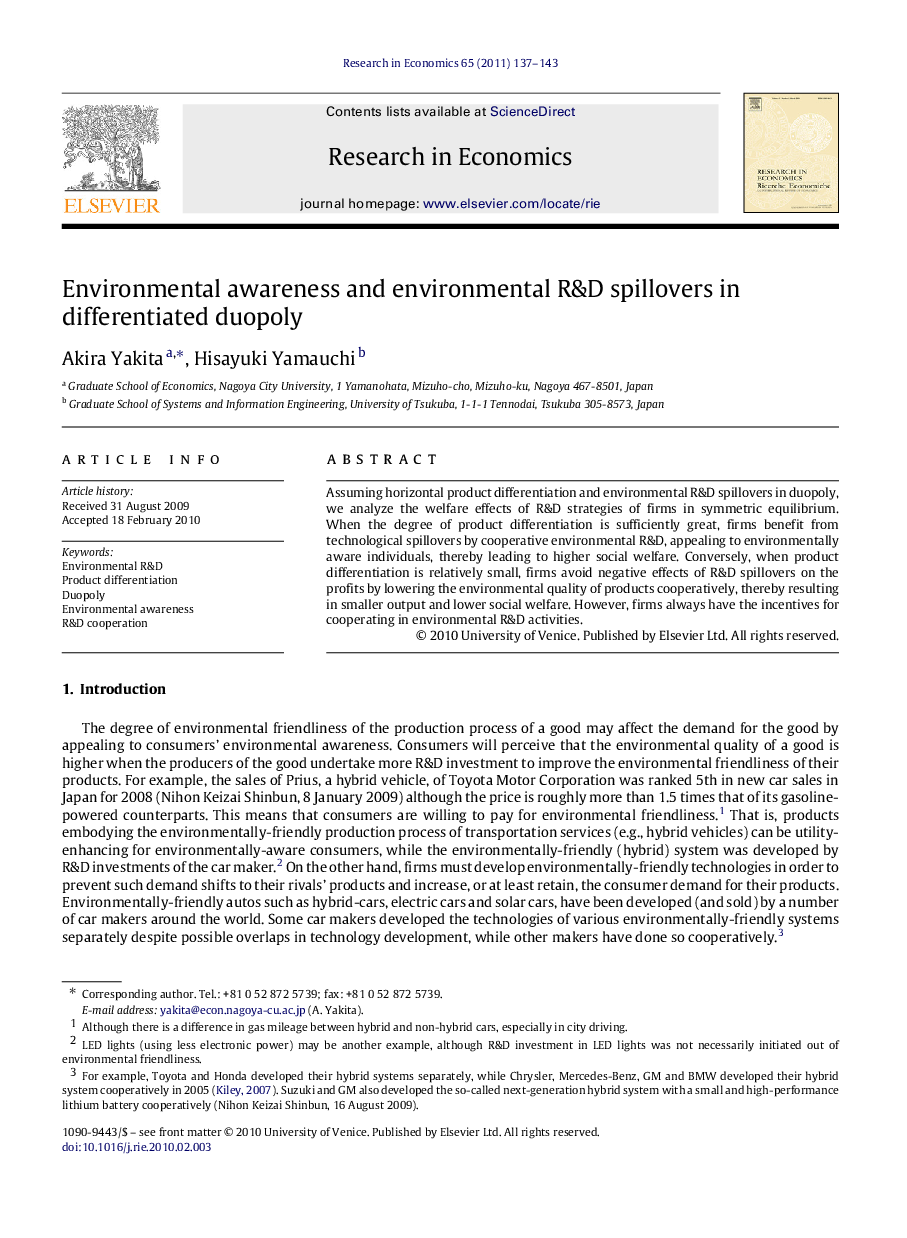| Article ID | Journal | Published Year | Pages | File Type |
|---|---|---|---|---|
| 984469 | Research in Economics | 2011 | 7 Pages |
Abstract
Assuming horizontal product differentiation and environmental R&D spillovers in duopoly, we analyze the welfare effects of R&D strategies of firms in symmetric equilibrium. When the degree of product differentiation is sufficiently great, firms benefit from technological spillovers by cooperative environmental R&D, appealing to environmentally aware individuals, thereby leading to higher social welfare. Conversely, when product differentiation is relatively small, firms avoid negative effects of R&D spillovers on the profits by lowering the environmental quality of products cooperatively, thereby resulting in smaller output and lower social welfare. However, firms always have the incentives for cooperating in environmental R&D activities.
Related Topics
Social Sciences and Humanities
Economics, Econometrics and Finance
Economics and Econometrics
Authors
Akira Yakita, Hisayuki Yamauchi,
